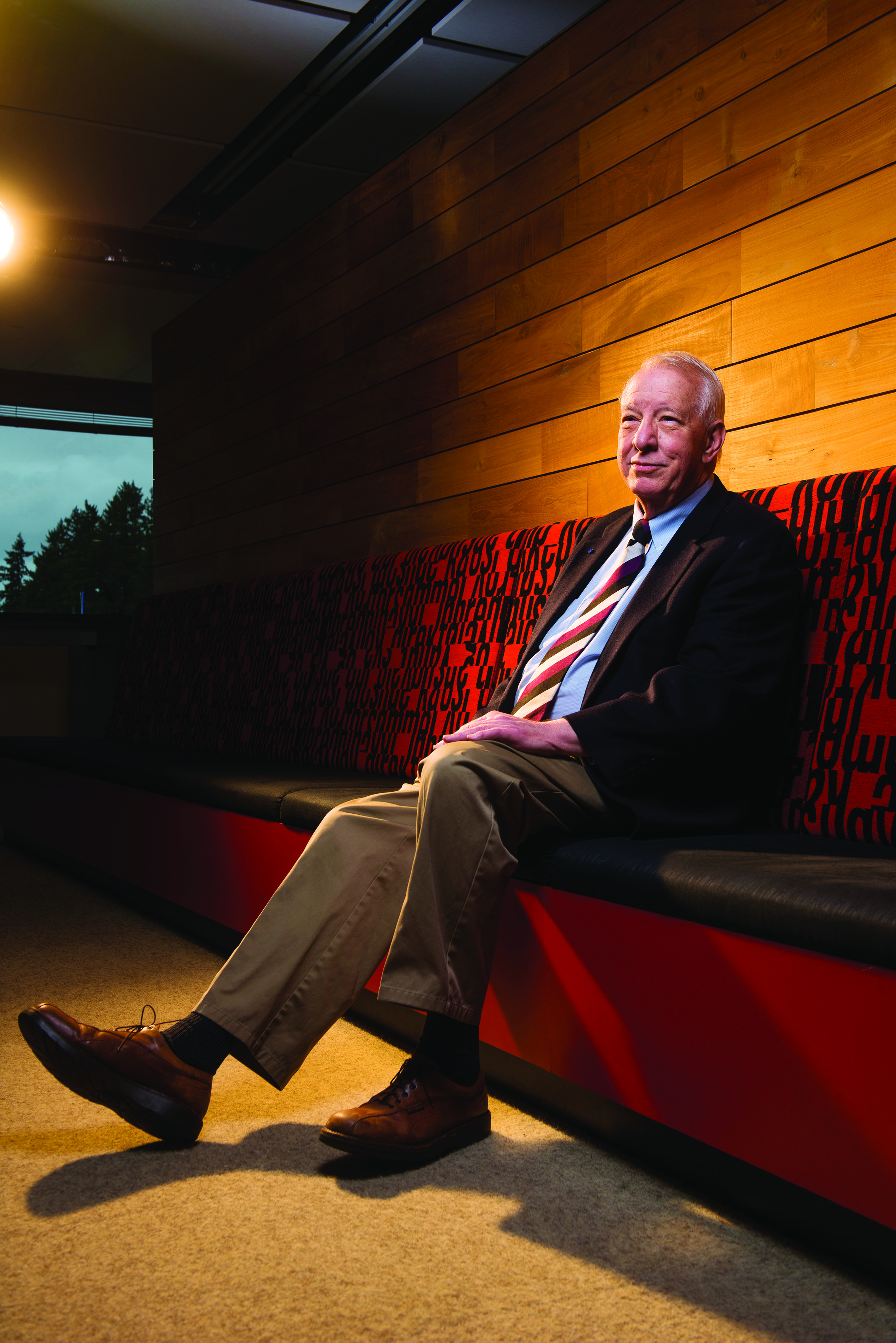
Coming to MIT for his graduate studies from the University of New Mexico was challenging for Burton J. Smith, who is now a successful computer architect. After he initially failed his oral qualifying exam in the Department of Electrical Engineering and Computer Science (EECS), his advisor, Al Drake, suggested he improve his presentation skills by doing some teaching. Smith got good enough at that to win EECS’s premier teaching award for graduate students. “[EECS showed me] how to learn, how to teach, how to be technically creative, and how much fun I was going to have for the rest of my life,” he says.
Smith, a technical fellow at Microsoft with expertise in parallel and high-performance computing, decided to give back by helping graduate students whose undergraduate institutions are underrepresented in EECS. “I wanted to encourage people like me to attend MIT in spite of their educational background,” he says. His gift honors his former mentor with the establishment of the Alvin W. Drake Fellowship Fund. “Professor Drake took care of me as my advisor and helped me keep faith in myself in spite of adversity,” he says. Smith hopes his gift will encourage graduate students to choose MIT “as a friendly and caring place that believes in their abilities and potential.”
Help MIT build a better world.
For information, contact David Woodruff: 617-253-3990; daw@mit.edu.
Or visit giving.mit.edu.
Keep Reading
Most Popular
Large language models can do jaw-dropping things. But nobody knows exactly why.
And that's a problem. Figuring it out is one of the biggest scientific puzzles of our time and a crucial step towards controlling more powerful future models.
How scientists traced a mysterious covid case back to six toilets
When wastewater surveillance turns into a hunt for a single infected individual, the ethics get tricky.
The problem with plug-in hybrids? Their drivers.
Plug-in hybrids are often sold as a transition to EVs, but new data from Europe shows we’re still underestimating the emissions they produce.
Google DeepMind’s new generative model makes Super Mario–like games from scratch
Genie learns how to control games by watching hours and hours of video. It could help train next-gen robots too.
Stay connected
Get the latest updates from
MIT Technology Review
Discover special offers, top stories, upcoming events, and more.